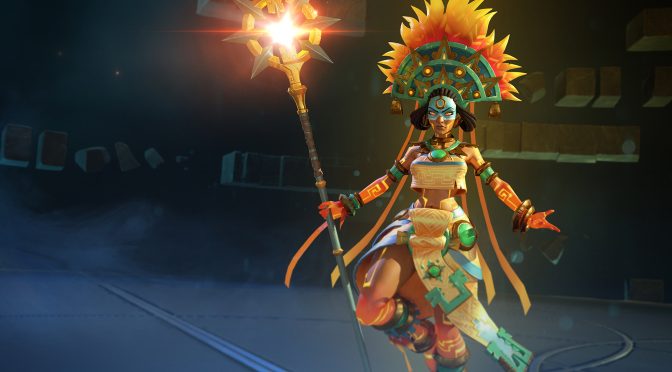Amazon Game Studios has announced that it has cancelled the development of its team battle sports game that would be the first one using its Lumberyard Engine, Breakaway. The team claimed that it was unable to achieve the breakthrough that made the game what it hoped it could be, and such as it has decided to focus on new ideas.
As Amazon Game Studios announced:
“We have worked to implement community feedback and iterate on Breakaway’s core gameplay. While we have developed many ideas and made a lot of progress, we are also setting a very high bar for ourselves. In spite of our efforts, we didn’t achieve the breakthrough that made the game what we all hoped it could be. After a lot of soul searching, the team decided to focus on new ideas. As a result, Breakaway is no longer in active development.”
Breakaway was meant to be a team battle sport where two squads of four collide in intense competition and its alpha phase has started. In it, players would pass, shoot, and fight in a fantasy battle arena where skillful plays and well-timed attacks were rewarded. Players could choose from a rooster of powerful warriors, play to the cheering crowd and gain recognition with signature dunks, epic saves, and game-changing buildables that would allow them to control the arena.
Players would be able to customize not only the look of their warrior, but also their weapons, taunts, and signature scoring moves such as dunks. The game would also be friendly to streamers and would feature a Spectator Mode, a Broadcaster Match Builde, Metastream functionalities, and Broadcast Spotlight.

John is the founder and Editor in Chief at DSOGaming. He is a PC gaming fan and highly supports the modding and indie communities. Before creating DSOGaming, John worked on numerous gaming websites. While he is a die-hard PC gamer, his gaming roots can be found on consoles. John loved – and still does – the 16-bit consoles, and considers SNES to be one of the best consoles. Still, the PC platform won him over consoles. That was mainly due to 3DFX and its iconic dedicated 3D accelerator graphics card, Voodoo 2. John has also written a higher degree thesis on the “The Evolution of PC graphics cards.”
Contact: Email

